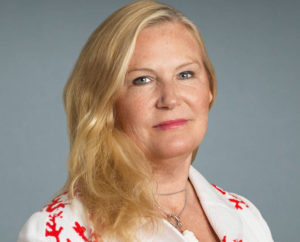 Alexes Hazen MD is an aesthetic and reconstructive surgeon in New York City. She runs her own private practice and is an Associate Professor at the Hansjorg Wyss Department of Plastic Surgery at NYU Langone Medical Center. She is also a board member of and professional partner with The AiRS Foundation.
Alexes Hazen MD is an aesthetic and reconstructive surgeon in New York City. She runs her own private practice and is an Associate Professor at the Hansjorg Wyss Department of Plastic Surgery at NYU Langone Medical Center. She is also a board member of and professional partner with The AiRS Foundation.
A typical day for Dr. Hazen begins with waking up at 5:30 a.m.; after her morning coffee, she gets ready and arrives at the hospital by 7:00 a.m. She then operates from 7:30 a.m. to 5:00 p.m., with a short break sometime in between to grab a bite to eat. Following surgery, she does some charting and makes phone calls before returning home by 7:00 p.m.
Why AiRS?
The impact for mental health on having reconstructive surgery on can be very significant. According to Dr. Hazen, the end goal of receiving breast cancer treatment is to be able to put the diagnosis behind oneself, return to normal life, and feel comfortable and confident, and again. This goal can be especially difficult to achieve for very young women, as this age group often places so much emphasis on body image. However, Dr. Hazen has seen a number of her younger patients get into a frame of mind where breast cancer is no longer at the forefront of their thoughts. Overall, she says, “statistically, women who have breast reconstruction after mastectomy feel better emotionally, are less traumatized, feel more whole, and get back to regular activities more quickly.”
For uninsured and underinsured women, however, reconstructive surgery is often not affordable. Dr. Hazen provided a few ways that could make reconstruction a more feasible option, including changing one’s insurance to allow for more coverage for surgery, setting up a Go Fund Me page and reaching out to family and friends to reach the deductible. In addition one can apply for emergency Medicaid financial support, if one does not have the funds to buy commercial insurance. But trying to do these things without a road map can be difficult.
Thus, according to Dr. Hazen, “organizations like AiRS are extremely helpful, as they provide women with help to navigate the medical system” She also works with the Foundation because “it is really important that women know they have the option for breast reconstruction”. AiRS helps women understand that breast reconstruction is their right, connects them with the right doctors, and provides a multitude of other services.
Before and After Reconstruction
In order to best prepare oneself for the process of a mastectomy and reconstruction, Dr. Hazen recommends seeking basic information about the operation, such as how long the surgery will be and whether it will require staying overnight. She also suggests trying to be as healthy as possible going into surgery, for example, by being at a healthy weight and being active as much as possible. Another important component is finding a network of support, including people to talk to about fears and those who can be relied on during the recovery process. Specifically, Dr. Hazen recommends having someone stay over for the first few nights.
For a patient’s family and friends, just being physically available and present is important. Because lifting heavy things is especially difficult, helping with very practical tasks can make a world of difference.
Citing a survey that was recently conducted, Dr. Hazen said that some women “think they will look better after reconstruction than they did before”. A patient can manage her self-image post-surgery by having realistic expectations. Dr. Hazen suggests that women keep in mind that “feeling comfortable in your clothing, social situations, and when naked is the end goal”. She also recommends having a conversation with to the surgeon beforehand to see what the scars will look like and where they will be, as well as being assured that they will fade over time. Particularly with the distortion of perception and overall unreality of social media – both of which have exacerbated body image issues – it becomes very important to go into surgery with reasonable expectations.
New Techniques
One of the newer methods Dr. Hazen uses for reconstruction is fat grafting – a process in which fat is removed from patient’s abdomen and used it to reconstruct the breast, resulting in a better look and feel. She has also incorporated new techniques into nipple reconstruction, such as tattooing the areola and nipple itself. While the use of tattooing in reconstruction has been around for a while, Dr. Hazen is working to “learn more about what looks more realistic.
Overall, Dr. Hazen says that “the most important thing is to not suffer in silence – to talk to people, find out what the options are, and make an informed decision”.
 Veronica Paulus is a rising junior at The Nightingale-Bamford School in New York City. This last summer Veronica interned with AiRS, in hopes of playing a role in generating increased awareness and advocacy for breast cancer treatment options.
Veronica Paulus is a rising junior at The Nightingale-Bamford School in New York City. This last summer Veronica interned with AiRS, in hopes of playing a role in generating increased awareness and advocacy for breast cancer treatment options.
Veronica plans one day to be working as a scientist and researcher in breast cancer to improve treatment options for women around the globe suffering with this disease.
